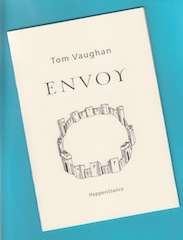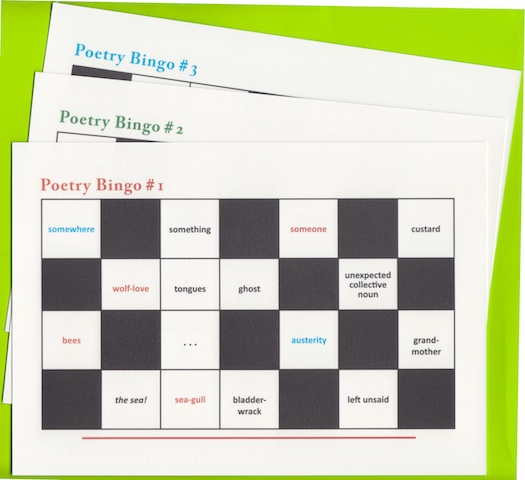‘From There To Here’ by Michael Mackmin
-Reviewed by Chris Emslie–
The poems in this pamphlet are presented in the style of a gallery of paintings. From There To Here might best be characterised as a series of landscapes, interrupted by the odd portrait or sketch, but all bearing Mackmin’s distinct signature. There is a vividness to these poems that almost begs to be made visible, to manifest itself before the reader. This quality emerges from Mackmin’s clear awareness of poetic tradition and his own place within it – from a critical perspective, this pamphlet makes its own context.
The scenes Mackmin presents become increasingly varied. The opening poem, ‘Here’, is reassuringly bucolic, easing the reader in with a solid lyrical charm: “[…]clumps / of darker, large-leaved green where / squashes grow, swell yellow into / orange.” This is offset by a irreverent four-line epithet that establishes the poem in classical terms with a wry self-awareness. This flirtation with the classics recurs a few times in From There To Here, generally accompanied by the same wicked humour. In ‘Her father’, the titular character merrily quotes “Facilis / descensus Averno” on the stairs, joking as he approaches the entrance to a metaphorical underworld. In ‘The watchers’ and ‘Here’, parenthetical references to “Philomel” and “Cincinnatus (remember him?)” are made offhand, in a manner that could almost be called cheeky. Mackmin gets away with it, however: his wry use of allusion addresses the de-privileging of academia quite neatly.
There is an engagement with heavier concerns here, too. ‘Things fall apart’ has a dystopian chill which is borne out by contrasting images of “stickers—hearts / and fairies, stars” and a “pick-up truck […] full of the naked dead”. These images, bleak though they may be, are executed cleverly – the reader is stricken immediately by the mirroring of ‘a long arm’ and a ‘long gun’ at either end of the poem. ‘The trap’ internalises the darkness glimpsed in ‘Things fall apart’, painting the “heart trap” into a vista of “rot-choked fields […] ploughed clean at a whisper.” These lines (instantly conjuring the “clean rasping sound’ of Seamus Heaney’s ‘Digging’) tint the pastoral scenery with an intoxicated blend of love and frustration.
What stands out about Mackmin’s poetry is that it is self-aware without resorting to brashness or self-pastiche. Few contemporary poets have the confidence to address the fabled “Ms Muse” directly and retain credibility. The muse in ‘The word’ is characterised as both demure and sexy, wearing at all times a knowing “flicked smile / at the joke it all is”. In her oracular voice, the reader gets a sense of Mackmin’s own self-critique: “you know you need / three more lines, an ending”. ‘This poem explains’, meanwhile, is a hilarious interrogation of the creative process and an undisguised jibe at the academy:
[…] I write
as my tutors here advise, of things
I know. They also say to show not
tell, which I also do. Philosophy
is my hobby, poetry my passion
as I’m sure you’ll see.
Here, Mackmin’s irreverence is offset by a wonderfully sardonic plea for validation (“I hope / you like my poem. I hope you like my poem.”). The flip interjection of historical material (“Hitler wanted all Jews / dead and nearly succeeded. Some say / he is misunderstood but I think not.”) recalls James Tate’s distracted monologue ‘I am a Finn’. In Michael Mackmin we have a poet and editor who knows his way securely around the history and form of his craft, and is not afraid to demonstrate it. However, as the pamphlet progresses, the poems come dangerously close to repetitive. Opening with ‘Here’ and closing with ‘There’ gives the text a symmetry that, though aesthetically pleasing, leaves the reader unsure if they have actually gotten anywhere. The use of parentheses becomes wearisome also, and by the time we reach ‘Lost (in transit)’ and ‘The list’, it seems almost like a nervous tic that has left the poet’s control.
While the poems in this pamphlet are both understated and deeply felt, there is a feeling of the poet keeping his reader at arm’s length. That is not to say that the reader is excluded because of obscurity or difficulty, but rather that there is something guarded about the texts. Putting even slightly confessional poems out in the public domain is always likely to raise questions of ownership, as both reader and author can surely appreciate, but it is difficult to shake the idea that Mackmin is not showing his entire hand. Perhaps, though, it is unfair to complain about this – even if he isn’t giving us everything he’s got, he’s certainly given a us a lot to be going on with.




Pingback: Where the phoque have you been?: an update « Quoi le Phoque?